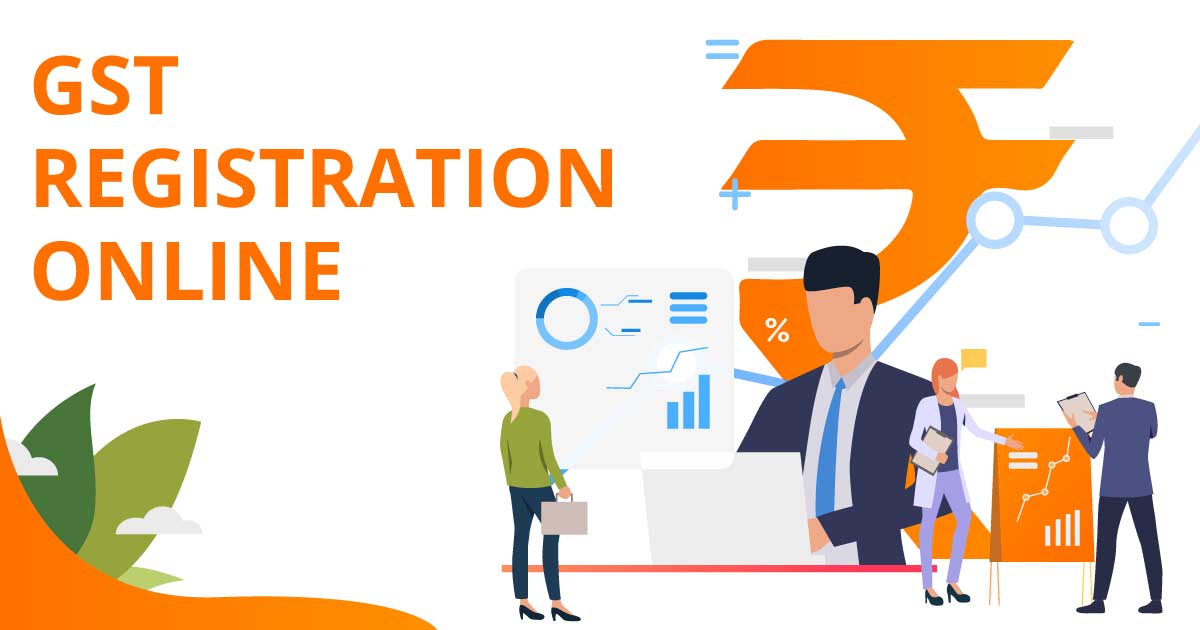From Beginning To End: The Ultimate Roadmap to GST Enrollment for Organizations Seeking Financial Stability
Browsing the intricacies of Goods and Services Tax Obligation (GST) registration is a vital action for organizations making every effort for monetary security. From understanding the basic principles of GST to following post-registration guidelines, the process can appear intimidating in the beginning glimpse. Damaging down the roadmap right into manageable actions can streamline the registration journey for companies looking to boost their monetary standing. Let's check out the important elements that make up this utmost roadmap and discover how each stage contributes to laying a strong structure for economic success.
Understanding GST Essentials
Exploring the essential principles of Goods and Services Tax (GST) is vital for gaining a detailed understanding of its effects on organizations and the economic climate. GST is a value-added tax obligation levied on the majority of items and services for domestic usage. It has replaced several indirect tax obligations that existed in the pre-GST era, simplifying the tax obligation framework and enhancing simplicity of doing business in India. Under the GST system, both goods and services are tired at a certain rate, which is established based on their classification. If their yearly turn over surpasses the threshold restriction established by the government, organizations are called for to register for GST. Input Tax Credit Report (ITC) is a substantial attribute of GST, enabling companies to assert credit scores for tax obligations paid on inputs, decreasing the overall tax concern. Comprehending the fundamentals of GST is critical for organizations to adhere to tax obligation policies, manage their financial resources efficiently, and add to the nation's economic development by joining a clear tax system.
Eligibility Standards for Registration
To sign up for GST, services should meet details eligibility standards developed by the federal government. The primary eligibility requirement is that any type of organization involved in the supply of products or services with a yearly accumulation turnover over the threshold restriction set by the authorities have to register for GST. As of the present policies, the threshold limit for GST registration is an annual aggregate turn over of 40 lakhs for organizations operating within a state, with the exception of unique category states where the restriction is 20 lakhs. Additionally, specific companies are required to sign up for GST regardless of their turn over, such as interstate suppliers, laid-back taxable persons, and companies reliant pay tax under the reverse fee mechanism. It is critical for companies to completely assess their turn over and deal kinds to identify their GST enrollment responsibilities properly. Failure to sign up for GST when eligible can cause charges and lawful consequences, making it vital for services to stick to the specified eligibility criteria.
Records Needed for Registration
Having actually satisfied the qualification criteria for GST enrollment, companies must now ensure they have the requisite files in location to proceed with the enrollment process successfully. The visit this website records needed for GST registration usually include proof of organization constitution, such as partnership deed, enrollment certification, or unification certification for various types of services. Furthermore, services need to offer documents developing the principal location of organization, such as a rental agreement or power costs.
Step-by-Step Registration Process
Starting the GST enrollment process includes a collection of structured actions to ensure a seamless and certified registration for companies. The initial step is to see the GST website and fill in the registration kind with exact details of business entity. Following this, the candidate gets a Short-lived Recommendation Number (TRN) which is made use of to return to the application procedure if it's not completed in one go.
Following, all needed papers according to the list provided by the GST portal demand to be published. These documents commonly consist of proof of organization registration, address and identity evidence of promoters, economic declarations, and business entity's PAN card.

Post-Registration Compliance Guidelines

Final Thought
To conclude, companies seeking financial security has to recognize the fundamentals of GST, fulfill qualification criteria, collect required documents, comply with the step-by-step registration process, and conform with post-registration guidelines - Best GST registration services in Singapore. By sticking to these steps, services can guarantee compliance with tax obligation laws and keep monetary stability in the future
In addition, particular businesses are called for to register for GST regardless of their turn over, such as interstate suppliers, casual taxable persons, and businesses accountable to pay tax under the reverse charge device.Having fulfilled the qualification criteria for GST registration, services have to now guarantee they have the requisite records in location to continue with the enrollment process successfully. The papers needed for GST registration usually include proof of business constitution, such as partnership act, registration certificate, or consolidation certification for different types of businesses. Additionally, companies require to give files establishing the principal location of business, such as a rental contract or power bill.Beginning the GST enrollment process includes a series of structured actions to ensure a smooth and certified enrollment for services.